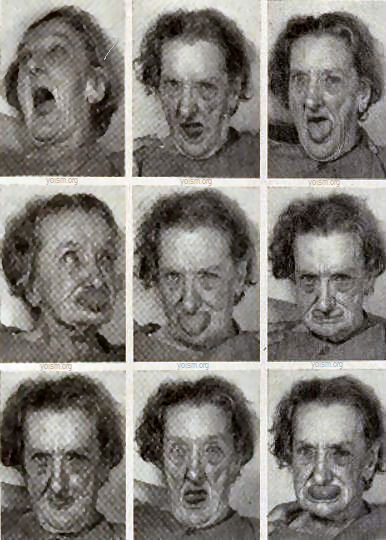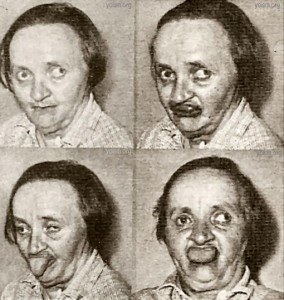You are staring at your friend hard. It has been decades but you have never seen her doing anything like this. You wonder if age is catching up with her. But she is not sticking out her tongue just for fun. She may be suffering from Tardive Dyskinesia, a health condition that affects a lot of people.
What is Tardive Dyskinesia?
Page Contents
Neurological disorder is how one can define Tardive Dyskinesia. The word ‘Tardive’ means ‘late’ and ‘Dyskinesia’ stands for ‘abnormal movements’. It is a health condition that causes involuntary movements of the face. It is the result of abnormal functioning of the nerves which lead to contraction of the muscles. This neurological disease is common in aged people. It can also affect young people undergoing antipsychotic treatment. It commonly affects the face but can also be seen in any other part of the body like neck, limbs, trunk and vocal cords.
Tardive Dyskinesia Symptoms
Some of the well-known symptoms of Tardive Dyskinesia include:
Involuntary Contraction

Picture 2 – Tardive Dyskinesia
Source – Goldbamboo
People with this disorder suffer from muscular contraction in their faces, lips and tongue. The muscle in other parts of the body like legs and trunk are also often affected. Patients can display such symptoms like :
- Tongue thrusting
- Facial grimacing
- Jerking of head
- Mouth puckering
- Finger movement
- Blinking
- Rolling the tongue around the mouth
- Twitching hands
- Tapping feet
- Twisting the trunk
Painful Contraction
The muscular contraction is often accompanied with light pain.
Trouble in Speaking
The involuntary muscular shrinking often affects the diaphragm. This results in improper pronunciation. Sufferers of this disorder can often be found grunting.
Finger Impairment
The fingers may not work properly in patients with Tardive Dyskinesia. Some may also exhibit twitching movement in fingers from time to time.
No Problems During Sleep
People with Tardive Dyskinesia generally have no problems during sleep. Normally, no muscle contractions are seen when they are asleep.
The movements are normally so slight that you may fail to notice them. But they get more pronounced with time.
Tardive Dyskinesia Causes
The side effects of powerful medicines are believed to be most definitive causes of Tardive Dyskinesia. Certain medicines have been specially singled out as the ones leading to this disorder. These are :
- Antipsychotic medicines – Also called ‘neuroleptic medicines’, these are used to cure psychological disorders like schizophrenia.
- Levodopa – These are used for the treatment of Parkinson’s disease. These are also commonly referred to as ‘L-dopa’. However, high doses of the medicine can combat Tardive Dyskinesia.
- Antiemetic medicines – These drugs can help control nausea and vomiting.
- Tricyclic antidepressants – These medicines are used to cure mood swings and psychological problems like depression.
These drugs block dopamine, a chemical found in the body. This chemical is essential for the normal performance of the Central Nervous Sytstem. Prolonged use of these drugs makes the nerve cells hypersensitive to dopamine. When the cells are stimulated by even a small quantity of dopamine, there is an abnormal transmission of nerve impulses within the body. The muscles show abnormal movements as a result.
Who gets Tardive Dyskinesia?
Typically, any person who has been undergoing treatment for psychiatric problems can be a victim of this disorder. Sufferers of depression, chronic schizophrenia, substance abuse and mental retardation stand a high chance of suffering from this disorder. Women who are being treated for post-menopausal syndrome can also be at a great risk of suffering from Tardive Dyskinesia.

Picture 1 – Tardive Dyskinesia
Source – goldbamboo
About 5% of all people undergoing antipsychotic treatment suffer from this disease. This is as much true for young people as older ones. If the treatment is prolonged, about 50 to 60% people can get affected. However, older people are always at a higher risk of getting this medical condition. 31% of people aged over 55 years are victims of this condition. Smokers are also at a high risk from this disease.
Diagnosis of Tardive Dyskinesia
The disorder is diagnosed by taking into account the medical history of the sufferer. It is checked how long the patient has been undergoing antipsychotic treatment. The antidepressants and other drugs used by the person are taken into account to determine if they can cause the syndrome. The muscular movements of the patient are also closely monitored to prevent misdiagnosis.
Tardive Dyskinesia Treatment
Treatment for Tardive Dyskinesia usually begins with the reduction of the quantity of the antipsychotic medicines. If possible, it is substituted with another drug. Symptoms usually lessen with this step. In certain cases, the symptoms may show a temporary deterioration, followed by a turn towards betterment. Some drugs are optionally used as replacements for antipsychotic medicines. These include medicines like
- Benzodiazepines
- Opioids
- Reserpine
- Propranolol
Doctors may also use some drugs solely for Tardive Dyskinesia Treatment, like Tetrabenazine, Clonidine and Zofran. Many unconventional antipsychotic medicines have been used with mixed results. The antipsychotic drug Clozapine has given the best resukts. It has been found to bring down symptoms within a year.
Early diagnosis plays a very important role in the treatment of this disease. If the medicines are stopped during the initial stages itself, the symptoms may stop appearing altogether. If the treatment is delayed, the symptoms may become permanent.
So if you have a dear one displaying symptoms characteristic of Tardive Dyskinesia, take him or her to a doctor immediately. Life is pretty depressing for people suffering from this disorder as well as their near ones. If you can check the disease early on, you can avoid a lot of heartburn later. And you can also see your loved one living a happy, healthy life.
References:
http://en.wikipedia.org/wiki/Tardive_dyskinesia
http://www.minddisorders.com/Py-Z/Tardive-dyskinesia.html
http://mentalhealth.about.com/cs/psychopharmacology/a/tardtive.htm
http://www.nlm.nih.gov/medlineplus/ency/article/000685.htm
